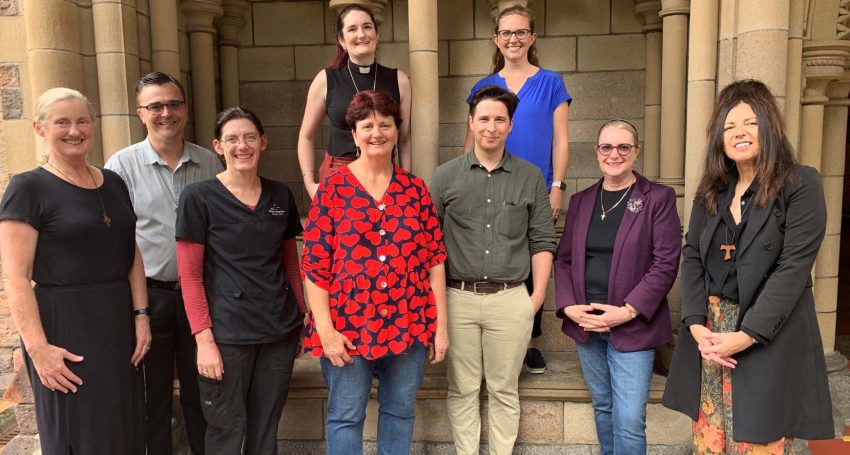What is an examining chaplain?
Reflections
“Our primary purpose is not formal testing, but ensuring that God’s plan is given the best chance…there is one ministry – the ministry of Jesus Christ. Examining chaplains are part of the process that enriches that one ministry, whether ordained or lay,” says examining chaplain, Dr Helen Lancaster

Invited by the Archbishop to become an examining chaplain, I wondered “Why me?” Despite being a priest’s kid and a Cathedral warden, I’d come across the title mostly at ordinations. I was to discover that examining chaplains are a piece of that great jigsaw puzzle that helps people discern their call to ordained ministry. If all the pieces are available, the resulting picture may be one of ordination, and if the pieces don’t quite fit, the picture is one of lay ministry greatly enhanced by the discernment process.
This vocation discernment process is a multi-faceted journey from “Seeker” to “Enquirer” to “Ordinand”. It is formalised by a period of vocational discernment, and possibly further explored through a period known as formation. No matter how long it takes someone to enter discernment, or how long the periods of discernment and formation might be, anyone called to this journey is supported by a number of examining chaplains.
Examining chaplains do all the things any examiner might expect to do – review, assess, listen, inquire and report. But more than all this, they know and are concerned for their candidates, encouraging and helping them to explore whatever seems best for them at each stage of their individual journey.
The Archbishop appoints examining chaplains, both clergy and lay people, to work with the Director of Discernment and Formation to help discern those who express a sense of call to ordained ministry in our Diocese. Together with the candidate’s individual parish priests and Regional Bishops, they assess the preparedness of each Seeker as they move into discernment, and possibly through to formation towards potential ordination.
Each chaplain brings different experiences, just as candidates come from disparate backgrounds. People responding to God’s call do not always emerge from “obvious” church backgrounds – some have professional roles while others have more varied job histories and some are highly educated while others are commencing tertiary study for the first time. Very few are very young. It’s almost as though God wants them out there experiencing the world before their calling becomes really clear.
Advertisement
It’s a great honour to share the vocational journey of a candidate, to observe their growth as they move from one parish to another, one form of liturgy to another, all the time responding to different challenges. Among the candidates I’ve had the privilege to meet are marketers, musicians, miners, educators and office workers. Some are established lay people, others simply respond in faith to an undeniable calling that they may not yet understand. The discernment process helps them to better realise how they might respond to God’s call.
Why did I accept the Archbishop’s invitation? Call it blind faith. After 45 years working in universities, the term “examining” was pretty familiar, but “examining chaplain” took me into unfamiliar territory. We are asked to “test the knowledge and qualifications, etc of a person” for ordained ministry. The real test is not so much about the “formal qualifications” as it is about the “etc” – what I would term “holistic readiness”. As candidates move through discernment and then maybe formation, that readiness takes different shapes. With each change comes the challenge for examining chaplains to stay mindful of how each shape, each candidate, might fit God’s plan.
Advertisement
Our primary purpose is not formal testing, but ensuring that God’s plan is given the best chance. As noted in “God Calling”, there is one ministry – the ministry of Jesus Christ. Examining chaplains are part of the process that enriches that one ministry, whether ordained or lay. We recognise that the ministry of the laity is foundational – one that transforms the Church.
Regardless of how the journey proceeds, all candidates are supported and encouraged, so that the Church benefits from well-prepared deacons, priests, and lay members. And, it doesn’t stop there because every member of the Church is called to Jesus’ ministry. By encouraging potential Seekers, and supporting them as they live out their vocation, we all contribute to the mission of the Church.
Note from The Rev’d Canon Sarah Plowman, Director of Discernment and Formation: If you are an ordained or lay Anglican in our Diocesan community and you are interested in expressing interest in becoming a voluntary examining chaplain, please contact me via sarah.plowman@anglicanchurchsq.org.au.





